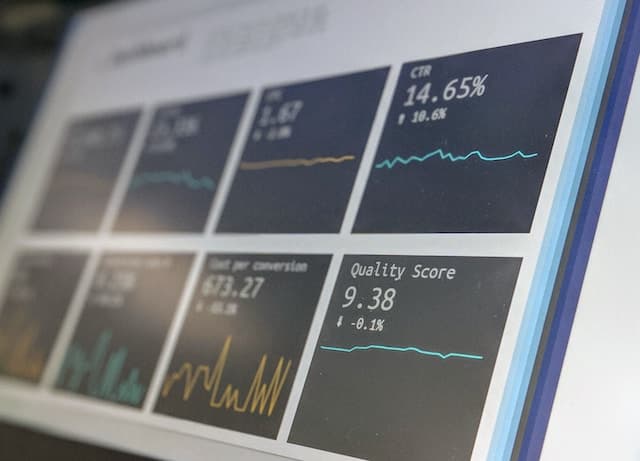With the rise of employing technology for revenue generation in the healthcare sector, there are a number of RCM systems available to help you boost your revenue. The system makes the entire medical billing process straightforward and automated, so you don’t have to spend hours filling in customer information, verifying eligibility, submitting claims, and collecting reimbursement.
RCM systems are designed to help hospitals and small-scale health practitioners in performing medical coding and charge capture in an appropriate way. Since medical coding demands to have technical knowledge, these systems can read the code itself and submit the claims with full assurance.
The Importance of RCM Systems in Healthcare Finances

RCM systems are essential to the effective management of healthcare finances in the current healthcare environment, where financial sustainability is a major goal for hospitals. The intricate billing and reimbursement procedures involved in generating income for the healthcare industry are to be optimized and streamlined by these technologies. Let’s delve deeper into the role that RCM systems play in healthcare funding.
Timely Claim Submission
One of the key benefits of RCM systems is the ability to ensure timely claim submission and reimbursement. These systems integrate with electronic health record (EHR) systems, allowing for seamless transfer of patient and billing information.
By automating the claim submission process and ensuring accurate coding and documentation, RCM systems increase the chances of flawless claim submission, minimizing claim rejections and denials. This, in turn, expedites the reimbursement process, ensuring hospitals receive timely payments for the services rendered.
Improved Cash Flow Management
Efficient cash flow management is essential for the financial stability of healthcare organizations. Revenue cycle management systems provide robust tools for tracking and monitoring the entire revenue cycle, including accounts receivable, payment posting, and collections.
By centralizing and automating these processes, RCM systems enable healthcare organizations to have real-time visibility into their financial status. This allows them to identify bottlenecks, monitor outstanding payments, and implement effective strategies for cash flow optimization.
Dive into the intricacies of RCM by clicking the button and learning more.
Enhanced Financial Performance Analysis
RCM systems offer advanced reporting and analytics capabilities that provide valuable insights into the financial performance. These systems generate comprehensive reports and key performance indicators (KPIs) that help in analyzing revenue cycle trends, identifying areas of improvement, and making data-driven decisions.
By leveraging these insights, healthcare organizations can proactively address revenue leakages, optimize reimbursement rates, and improve overall financial performance.
Compliance and Regulatory Adherence
In the complex landscape of healthcare billing and reimbursement, compliance with regulatory guidelines is of utmost importance. RCM systems are designed to stay updated with the latest healthcare regulations and coding guidelines, ensuring adherence to industry standards.
These systems incorporate built-in coding and billing rules, automated claims scrubbing, and compliance checks to minimize the risk of non-compliance and associated penalties.
Focus on Patient Care
By streamlining and automating revenue cycle management processes, healthcare organizations can free up valuable resources, allowing their staff to focus more on delivering quality patient care.
RCM systems automate time-consuming administrative tasks, such as claim submission, follow-up, and payment posting, reducing the administrative burden on healthcare professionals. This enables them to dedicate more time and effort to patient care, leading to improved patient satisfaction and better healthcare outcomes.
The Top 10 RCM Systems for Hospitals

Based on a comprehensive survey of hospitals, the following RCM systems have been consistently ranked among the top 10:
1. Waystar
- Comprehensive suite of RCM solutions for hospitals of all sizes.
- Advanced analytics and reporting capabilities for performance monitoring.
- Integration with major EHR systems and payer networks for seamless workflows.
2. FinThrive
- AI-powered billing and coding automation for improved efficiency and accuracy.
- Real-time eligibility verification and claim status tracking.
- Patient payment portals and self-service options for enhanced patient experience.
3. TruBridge Evident
- End-to-end revenue cycle management solutions tailored for hospitals.
- Robust claims scrubbing and denial management functionalities.
- Real-time visibility into key revenue cycle metrics and performance indicators.
4. Allscripts
- Scalable RCM solutions designed to meet the needs of large hospital networks.
- Seamless integration with Allscripts EHR system for streamlined workflows.
- AI-driven predictive analytics for revenue optimization and process efficiency.
5. SSI Group
- Comprehensive suite of RCM solutions, including claims management and patient access.
- Data-driven insights and reporting for revenue cycle performance improvement.
- Compliance-focused tools to ensure adherence to regulatory requirements.
6. Medicus RCM
- Revenue cycle solutions tailored for physician practices and hospital networks.
- Automated charge capture and coding to minimize revenue leakage.
- Real-time analytics and reporting for performance tracking and optimization.
7. Infinx
- AI-powered prior authorization and eligibility verification solutions.
- Automated claims processing and denial management workflows.
- Robust reporting and analytics for actionable insights into revenue cycle performance.
8. Conifer
- End-to-end RCM solutions for hospitals, physician practices, and healthcare systems.
- Integrated coding, billing, and denial management functionalities.
- Advanced analytics and reporting for revenue cycle optimization.
9. Harris Affinity
- Comprehensive RCM solutions designed for hospitals and healthcare organizations.
- Advanced claims management and denial prevention capabilities.
- Integrated billing and financial analytics for data-driven decision-making.
10. Epic
- Robust RCM module within the Epic EHR system.
- Seamless integration with clinical workflows for enhanced efficiency.
- Comprehensive revenue cycle analytics and reporting capabilities.
Choosing the Right RCM System

Selecting the right RCM methodology requires a thoughtful evaluation of the hospital’s specific needs, integration capabilities, and reputation of the providers. Consider the following steps:
Assess Your Hospital’s Requirements
Begin by conducting a comprehensive assessment of your hospital’s specific requirements and pain points in the RCM process. Identify the challenges you currently face, such as claim denials, payment delays, or inefficient billing workflows.
Determine the functionalities and features you need in an RCM system to address these challenges effectively. This assessment will serve as a foundation for comparing and evaluating different RCM solutions.
Scalability and Flexibility
Consider the scalability and flexibility of the RCM system to ensure it can accommodate your hospital’s current and future needs. Evaluate whether the system can handle the anticipated growth in patient volume, expansion into new services, or potential changes in billing and coding requirements.
Look for an RCM system that offers customizable features and adaptable workflows, allowing you to tailor the system according to your hospital’s evolving needs.
Integration Capabilities
Seamless integration with existing hospital systems, such as electronic health records (EHR) and practice management software, is crucial for efficient data exchange and workflow continuity.
Verify that the RCM system you choose has robust integration capabilities, enabling smooth interoperability with other key systems. This integration ensures a streamlined flow of patient and billing information.
Compliance and Security
Given the sensitive nature of patient data and the complex regulatory landscape, it’s vital to prioritize compliance and security features in an RCM system. Ensure the system adheres to industry standards and complies with relevant healthcare regulations, such as HIPAA (Health Insurance Portability and Accountability Act).
Look for features like built-in coding rules, compliance checks, and audit trails to safeguard patient information and minimize the risk of non-compliance.
Cost-effectiveness
Budget considerations are essential when selecting an RCM system. Evaluate the total cost of ownership, including upfront expenses, ongoing maintenance fees, and any additional charges for upgrades or support services.
While cost is a factor, remember to focus on the value and return on investment the RCM system can provide. Consider the potential revenue enhancements, operational efficiencies, and time savings that the system can deliver, which can outweigh the initial investment.
Demonstrated Success
Seek evidence of the RCM system’s performance and success in similar healthcare settings. Request case studies, success stories, or references from the vendor to understand how their system has helped other hospitals achieve their financial goals and improve operational outcomes.
Achieving Financial Stability
Selecting the right RCM system is a critical decision for hospitals looking to optimize their revenue cycles and achieve financial stability. The top 10 RCM systems discussed in this article have proven their effectiveness in revenue generation and customer satisfaction.
Embrace the power of technology and select a system that best aligns with your hospital’s goals and requirements. Maximize your revenue potential and ensure financial stability while delivering quality healthcare services to your patients.
Remember, your hospital’s financial success starts with efficient revenue cycle management!

